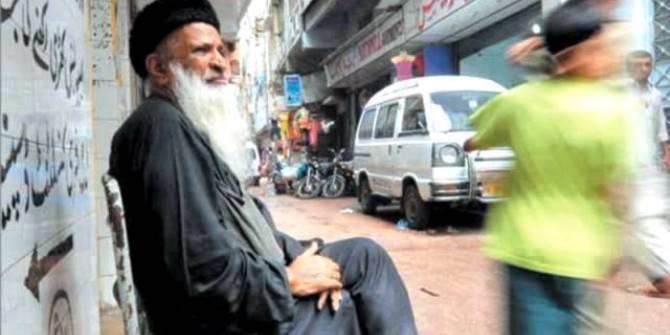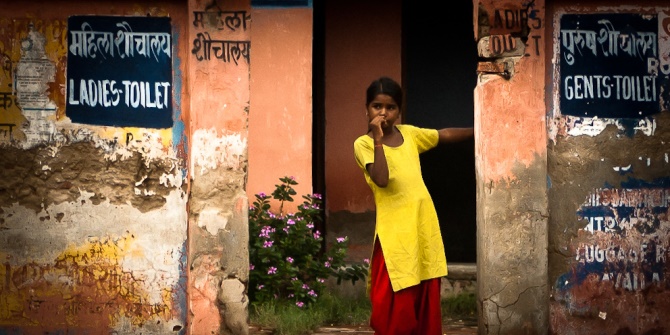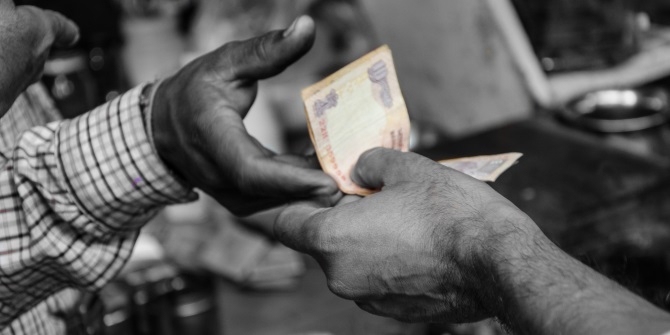Francesco Obino uncovers what Indian civil society organisations and bureaucrats think of international NGOs’ decision to become ‘fully Indian’.
If concepts such as participation and ownership in the development sector are to be anything more than buzzwords, particularly after they have been fully embraced at the Busan High Level Forum in 2011, international development NGOs (INGOs) today need to show that they ‘belong’ to the society where they work. For INGOs, this shift poses radical implications for their legitimate presence in domestic settings and their role in world politics as the legitimate vehicle of the voice and interests of the world’s disenfranchised.
In a previous post I claimed that India offers an illuminating perspective on INGOs’ efforts to rescue their legitimacy as political actors (domestically and internationally) by becoming ‘fully national’ themselves. This decentralisation process has two components: designing national institutions capable of resisting accusations of being an ‘international hand’, and building the credibility and capacity to speak with a legitimate Indian voice both nationally and internationally. A critical part of this strategy is building national institutions that become an integral part of domestic civil society.
If the goal is clear and the motivations compelling, being recognised as one of the ‘locals’ in a development landscape as vast, politicised and complex as India’s is clearly easier said than done. So what do domestic development actors think of decentralised INGOs’ ambitions of crafting a national or local identity?
Here I present, in a few vignettes, a sample of the range of reactions emerging from my 2012 PhD fieldwork on INGOs’ transition to national organisations. These positions emerge from semi-structured interviews with staff from a number of INGOs operating out of New Delhi (including Plan, Oxfam, ActionAid, Save the Children, Care, CEDPA, ChristianAid) and with more than 40 Indian civil society organisations (CSOs) and NGO leaders, government officials and politicians. Unsurprisingly, there is a lot of confusion about the rationale, aims and implications of INGOs’ ‘Indianisation’, and a large front of opposition:
“Indian INGOs? Since when?” Many interviewees, including high-ranking government officials and politicians, are yet not aware most INGOs in Delhi had registered as Indian organisations, with Indian boards, management and staff, and with full autonomy to determine the scope of their operations and advocacy. The change, nevertheless, was often perceived as long overdue and virtually beneficial, particularly if the competence of the Indian offices remained that of bringing issues to the international level where independent Indian organisations could not reach as easily as INGOs.
“National chapters, but far from being Indian organisations” Among those who were aware of the transition, particularly civil society leaders with a long experience of partnering with INGOs, the perception is that the INGOs’ shift is more rhetorical than substantive. INGOs retain most of the features that made them international: higher salary scales, impressive corporate offices, a partnership model based on funding of domestic organisations and weak political contacts. In other words, business as usual.
“They have irresponsible aspirations” INGOs’ reincarnation as national organisations came with a renewed self-confidence about the public role they can play. Increasingly, INGOs seek to establish themselves as credible actors in the public sphere and privileged interlocutors with state institutions, bridging an assumed gap between Indian CSOs and India’s institutions. This aspiration is highly contentious and was often described as irresponsible, particularly for its implication for smaller and more vulnerable organisations that INGOs have thus far supported. Among others, the head of India’s largest NGO umbrella organisation (VANI) argued that INGOs new confidence in their role as actors rather than donors meant that INGOs are scaling down their funding to smaller organisations. At the same time, they are eager to raise publicly contentious issues that are likely to provoke a backlash. Smaller organisations thus risk double exposure when INGO campaigns backfire.
“It’s all about their logo and ego” Another group of interviewees, particularly from CSOs heavily engaged in national networks, developed the previous critique further by arguing that the idea that INGOs are filling any ‘gap’ beyond that of funding is preposterous. With the Right to Food campaign, for example, CSOs claim to have established strong working relationships with the country’s political institutions while INGOs – notwithstanding their commitment to a high-profile engagement on the issue – are “nowhere to be found or seen”. At a time of shrinking funding opportunities, INGOs’ failure to work collaboratively translated for many into unfair competition.
“They are usurpers” A related critique points to the overwhelming capacity of INGOs to attract highly skilled and experienced staff and funding, thereby diverting critical human and financial resources away from Indian CSOs. This ‘usurpation’, along with the aspiration to be a strong ‘national’ voice, was perceived as depriving domestic actors of critical spaces that naturally belong to them.
“From foreign hand to horse of neoliberalism” Some even denounced the incompatibility of INGOs’ mode of operation with the deeply political culture of India’s development sector. In the eyes of their harshest critics, INGOs are turning development into a technical domain of professional action, rather than an arena of activism. Along with their selective approach to critiquing government action, this makes INGOs incapable of facilitating the social and political change that is the ultimate solution to India’s development issues.
These critiques offer just a glimpse of the ongoing debates within and alongside INGOs in India, and they are not necessarily new or justified: some are polemical attempts to delegitimise INGOs while others echo concerns shared by INGOs’ own staff and management.
If the decision to decentralise is a strategic response to calls for downwards accountability of INGOs, a political statement about the need to allow Southern intellectual authorship and ownership of development agendas, and a deliberate attempt to rescue the legitimacy of INGOs’ ‘voice’ in global politics, then even the harshest critiques could be a proof that INGOs are now more than ever a part of India’s development landscape and politics. What remains to be seen is if INGOs are fully ready to take on the challenges this new position entails, or whether they will keep to their image as a facilitator on the fringes of domestic civil society—in India as much as elsewhere.
Francesco Obino is a Bagri Fellow at the Asia Research Centre and an MPhil/PhD candidate at LSE’s Department of International Relations.








